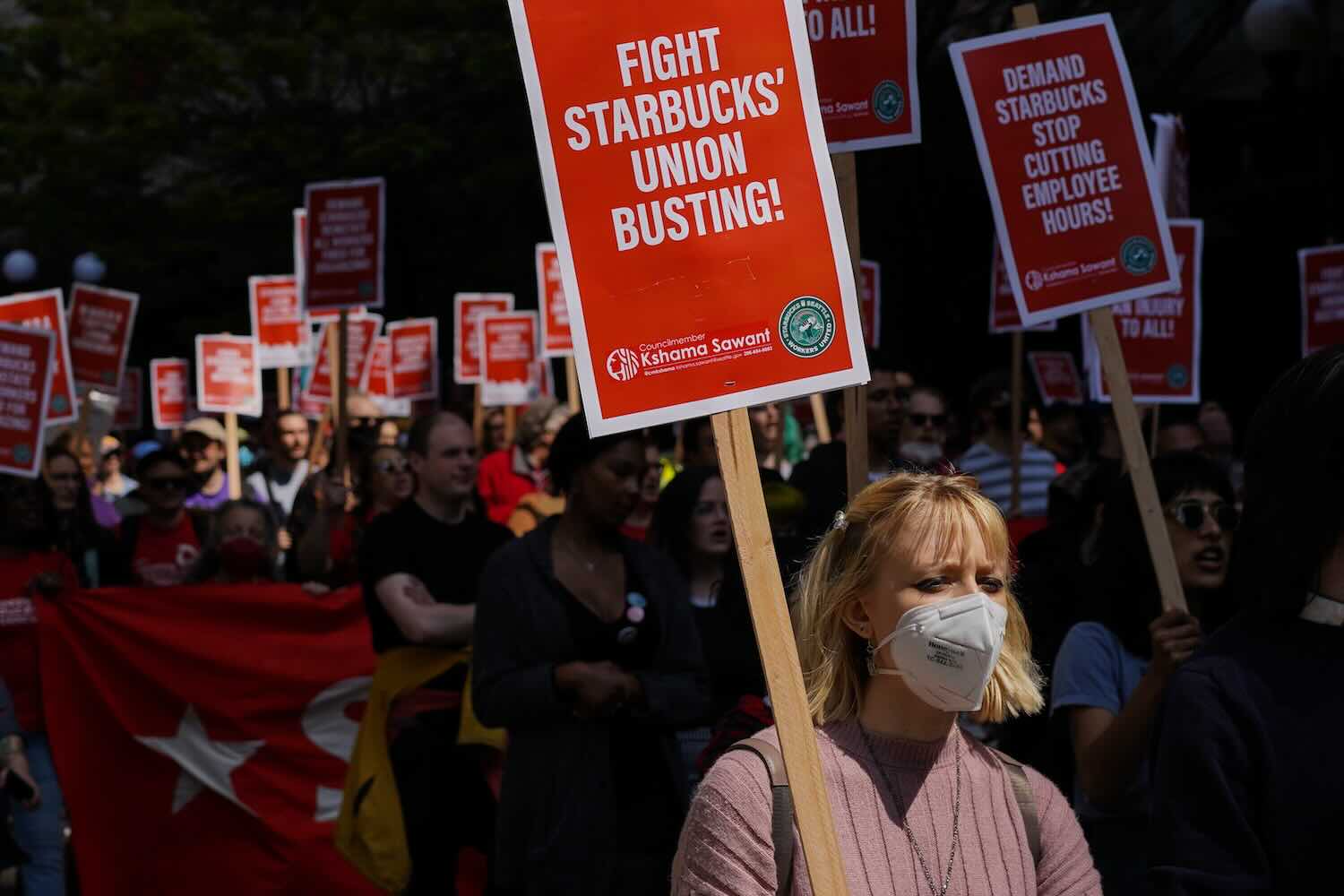The future of work is here. With unemployment soaring and many jobs never coming back, long-forecast shifts in employment patterns that might have played out over a decade or more are snapping quickly into place.
To adjust, millions of people in the U.S. and around the world will need retraining, certifications and other support to reskill themselves for the many jobs for which demand still exceeds the supply of trained workers.
That takes money. And while government loans and retraining programs can help, the bulk of education costs continue to fall on individuals and their families. Just ask the 45 million Americans who owe a collective $1.6 trillion in student debt, without even a guarantee of a good-paying job.
“For people who are the most vulnerable, the low-income folks among us, having them bear the risk is inappropriate,” says Tracy Palandjian, CEO of Social Finance, the Boston-based nonprofit that pioneered “social impact bonds” and other pay-for-success tools to better align public and private resources with social impact outcomes.
In an interview on ImpactAlpha’s Returns on Investment podcast, Palandjian discussed Social Finance’s latest innovation: Career Impact Bonds.
Pay-for-success principles can flip career-transition risk on its head, she says, “and use impact investors to come and to take the risk for low-income individuals who want to upskill themselves, who want to acquire the competencies – whether a license, credential or degree – to compete in the new economy.”
Social Finance raises $36 million for ‘career impact bonds’ and backs American Diesel Training
Outcomes-oriented
For a decade, social impact bonds have been a captivating idea that has never quite captured the market. More than 100 social impact bonds have mobilized nearly a half-billion dollars and touched more than 700,000 lives in two dozen countries. Congress has appropriated $100 million to enable the federal government to roll out pay-for-success programs to address unplanned pregnancies, maternal and infant health, chronic disease, foster care and other social challenges.
But the complicated structure and high transaction costs of such deals have limited their broad uptake. (Social impact bonds are distinct from “social bonds” issued by development finance institutions, corporations and countries, including to raise capital for COVID-related relief and recovery.)
Is the social impact bond market half-billion full or empty?
The core insight of social impact bonds, however, has taken on new significance in the COVID crisis, as governments have rushed billions of dollars in relief funding. From homelessness to early childhood education to asthma, prevention is more effective than treatment.
In California, for example, Gov. Gavin Newsom quickly found $150 million to purchase more than 1,300 Federal Emergency Management Agency trailers and lease thousands of rooms in hotels and motels across the state to enable some of the state’s homeless population to better shelter-in-place and avoid the coronavirus.
“How can we turn this kind of monumental short-term energy and governments’ willingness to spend money into something lasting?” Palandjian, along with Stanford’s Paul Brest, wrote in Stanford Social Innovation Review in March.
Pay-for-success contracts and social impact bonds let investors finance such interventions and get repaid by governments based on clear milestones of success. Social impact bonds in Colorado, Massachusetts and Santa Clara, Calif. (and in development in Alaska, Tennessee, Texas and southern California) are financing ‘permanent supportive housing.’ The tested approach wraps housing with mental health and other support services.
“It is proven to keep folks’ lives stable and really address homelessness at scale,” Palandjian says in the podcast.
If local, state and federal governments now want to take on such outcomes-oriented preventive interventions directly, all the better, Palandjian says. “We’ve always said the social impact bond is the second-best solution.”
Risk shift
Career Impact Bonds build on income-share agreements that dozens of universities now provide to help students with upfront funding for college tuition, fees, books, and other living expenses. Students generally agree to pay a portion of their future income for a fixed period of time.
Colombian education finance firm Lumni acquires Paytronage to boost U.S. presence
Career Impact Bonds extend that idea from four-year colleagues to vocational and other certificate programs that can upskill workers for in-demand occupations such as computer coding, nursing and truck driving. The bonds also cover student costs for extra job coaching, emergency childcare, rent and transportation, “so we can have the greatest chance of this person succeeding,” Palandjian says.
“Let’s take the risk away from the student and level the playing field so students only repay the debt when they get a job,” she says.
Last year, Social Finance launched a 1,000-student Career Impact Bond with General Assembly, the coding bootcamp that typically costs $15,000 to train students as computer programmers and IT administrators.
Once the student gains employment at a salary above a certain threshold, they begin to make payments into the repayment pool. Investors recoup their principal and a modest rate of return.
Social Finance closed last December on about half of its targeted $40 to $50 million raise for its first UP Fund (which stands for – take your choice – unlocking potential, uncommon partnerships or upskilling) to finance programs in nursing, truck driving and other professions.
Palandjian said the career impact bond model and the UP Fund aimed to address the future of work and rising inequality before the arrival of COVID. The need is even more urgent as workforce changes accelerate.
“What scares me is that we’re going to emerge an even more unequal society after the pandemic,” Palandjian says. The pandemic will create new jobs even while many old ones go away, she said. “The impact thesis still holds.”
Catch up on all of ImpactAlpha’s Returns on Investment podcasts, and subscribe, on iTunes, Spotify, SoundCloud or Stitcher.











